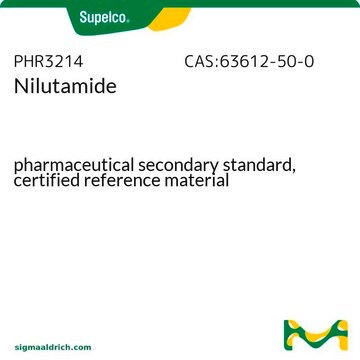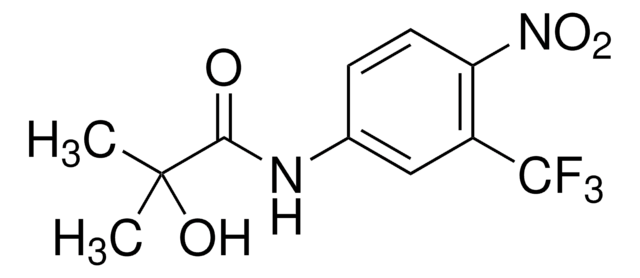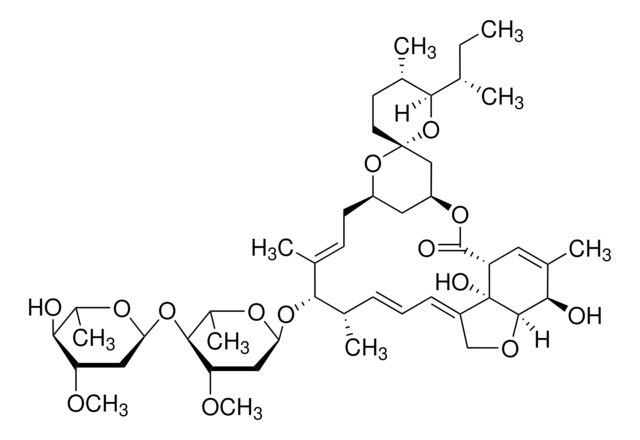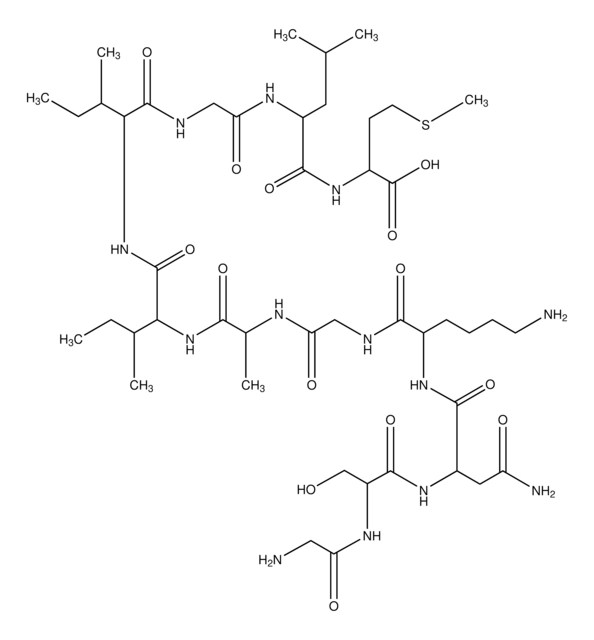N8534
Nilutamide
solid
Synonym(s):
5,5-Dimethyl-3-[4-nitro-3-(trifluoromethyl)phenyl]-2,4-imidazolidinedione, Anandron, RU-23908
About This Item
Recommended Products
form
solid
Quality Level
originator
Sanofi Aventis
SMILES string
CC1(C)NC(=O)N(c2ccc(c(c2)C(F)(F)F)[N+]([O-])=O)C1=O
InChI
1S/C12H10F3N3O4/c1-11(2)9(19)17(10(20)16-11)6-3-4-8(18(21)22)7(5-6)12(13,14)15/h3-5H,1-2H3,(H,16,20)
InChI key
XWXYUMMDTVBTOU-UHFFFAOYSA-N
Gene Information
human ... AR(367)
Looking for similar products? Visit Product Comparison Guide
Application
- as a nuclear androgen receptor (nAR) inhibitor to study its effects on oocyte maturation in zebrafish
- to determine its effects on bioluminescent Saccharomyces cerevisiae bioreporters in BLYAS assay
- as a substrate in hydrogenation reaction
Biochem/physiol Actions
Features and Benefits
signalword
Danger
hcodes
Hazard Classifications
Acute Tox. 3 Oral - Repr. 1B
Storage Class
6.1C - Combustible acute toxic Cat.3 / toxic compounds or compounds which causing chronic effects
wgk_germany
WGK 3
flash_point_f
Not applicable
flash_point_c
Not applicable
ppe
Eyeshields, Faceshields, Gloves, type P3 (EN 143) respirator cartridges
Choose from one of the most recent versions:
Certificates of Analysis (COA)
Don't see the Right Version?
If you require a particular version, you can look up a specific certificate by the Lot or Batch number.
Already Own This Product?
Find documentation for the products that you have recently purchased in the Document Library.
Our team of scientists has experience in all areas of research including Life Science, Material Science, Chemical Synthesis, Chromatography, Analytical and many others.
Contact Technical Service









